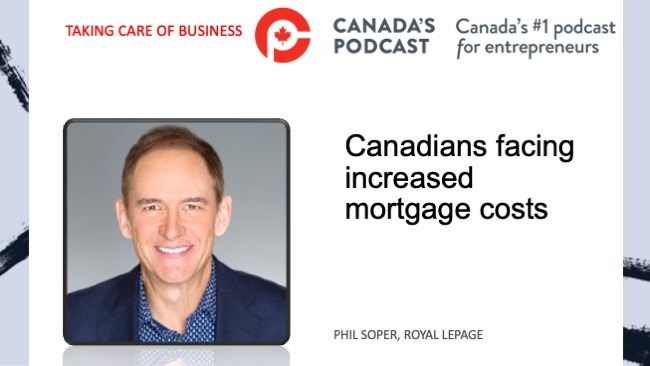 Dan Kelly, President/CEO, Canadian Federation of Independent Business, discusses how small business owners are impacted by increasing numbers of people not showing up for a job interview or not showing up for a new job.
Dan Kelly, President/CEO, Canadian Federation of Independent Business, discusses how small business owners are impacted by increasing numbers of people not showing up for a job interview or not showing up for a new job.
Kelly talks about labour shortages in Canada, why we’re seeing it and the effect on entrepreneurs across the country.
Full video can be seen here.
PRESS RELEASE
Toronto, December 1, 2022 – Small businesses across Canada are dealing with a growing trend in the hiring process: being ghosted by job candidates and new hires. More than one-third of small business owners said they’ve hired people who never showed up or stopped coming into work shortly after starting (36%) and/or had job candidates who stopped responding during the application or interview process in the past 12 months (37%), according to a new survey by the Canadian Federation of Independent Business (CFIB).
“Employers are already having an incredibly hard time filling certain positions. Ghosting is not only a frustrating waste of their time, it’s a big drain on their already limited resources,” said Dan Kelly, President at CFIB. “Job candidates and employees don’t have to take or stay in jobs they don’t like, but they should at least communicate their intentions clearly to their employer instead of leaving them scrambling and wondering.”
Skilled or semi-/unskilled labour shortages continue to limit business growth for 53% and 38% of businesses, respectively, according to the latest CFIB Business Barometer. Over half (52%) of small businesses have yet to return to normal revenue levels and 58% haven’t repaid their pandemic debt, according to CFIB’s Small Business Recovery Dashboard.
Employment Insurance changes should not disincentivize return to work
As the federal government is working on potential reforms to the Employment Insurance (EI) system, CFIB is urging Ottawa to take into consideration the impact of potential EI changes on small businesses.
“We’re hearing from business owners who have experienced ghosting that some candidates prefer to stay on EI for as long as possible and may be applying for or taking jobs just to satisfy the requirements of the program,” added Kelly. “While the vast majority of EI recipients may be looking for work in good faith, any changes the government is considering making to the program should not disincentivize people from accepting or starting jobs, especially with the current labour shortages we’re experiencing.”
CFIB recommends the federal government not implement any permanent changes to the EI system until the economy has fully recovered. This includes:
- Not making coverage for the self-employed mandatory as it could have significant cost implications for many small businesses
- Undertaking a full and detailed costs analysis of all expansion proposals and laying out a plan to ensure EI remains sustainable without imposing any new costs on employers
“EI is supposed to serve as a temporary relief measure for people facing an unexpected job loss or in between jobs. Now is not the time to make permanent changes to the EI system that would increase the cost of doing business or disincentivize people from working. Small businesses still need time to get back on their feet,” said Corinne Pohlmann, Senior Vice-President of National Affairs at CFIB. “Employers across all provinces and sectors are experiencing labour shortages, and any changes to the EI program should not exacerbate them.”
About CFIB
The Canadian Federation of Independent Business (CFIB) is Canada’s largest association of small and medium-sized businesses with 95,000 members across every industry and region. CFIB is dedicated to increasing business owners’ chances of success by driving policy change at all levels of government, providing expert advice and tools, and negotiating exclusive savings. Learn more at cfib.ca.
 (Mario Toneguzzi is a veteran of the media industry for more than 40 years and named in 2021 a Top Ten Business Journalist in the world and only Canadian)
(Mario Toneguzzi is a veteran of the media industry for more than 40 years and named in 2021 a Top Ten Business Journalist in the world and only Canadian)
About Us
Canada’s Podcast is the number one podcast in Canada for entrepreneurs and business owners. Established in 2016, the podcast network has interviewed over 600 Canadian entrepreneurs from coast-to-coast.
With hosts in each province, entrepreneurs have a local and national format to tell their stories, talk about their journey and provide inspiration for anyone starting their entrepreneurial journey and well- established founders.
The commitment to a grass roots approach has built a loyal audience with over 120,000 downloads and thousands of subscribers on all our social channels and YouTube. Canada’s Podcast is proud to provide a local, national and international presence for Canadian entrepreneurs to build their brand and tell their story.
Advertising and Sponsorships: At Canada’s Podcast we are here to help you reach your communication objectives and get you results. If you are looking to build your brand, promote your products/services, announce an event, then you will want to reach our extensive data base of owners and entrepreneurs.
Contact sales at: robert@canadaspodcast.com and find out how we can make an impact on your bottom line with our sponsorship packages. Sponsors include: RBC Bank, The Cooperators Insurance, Silicon Valley Bank, eBay, Lethbridge Economic Development, VanHack, CBC Dragon’s Den, The Competition Bureau, The Vancouver Board of Trade and more.





